Lonely death is a shocking phenomenon from Japan
Categories: Asia
By Pictolic https://pictolic.com/article/lonely-death-is-a-shocking-phenomenon-from-japan1.htmlTranslated from Japanese, the word kodokushi ("kodokushi" or "kokodushi") it means "lonely death". This is the name of the phenomenon when people die at home, forgotten by everyone. Their bodies are discovered only after many months. The word "kodokushi" is most often used when a person died at home due to illness or an accident and no one noticed his death. However, there is no single definition of this term, and experts disagree about which death should be considered as kodokushi. For example, how many days should pass before the discovery of a corpse, whether suicide should be included in this statistic, etc.
Let's learn more about this phenomenon.
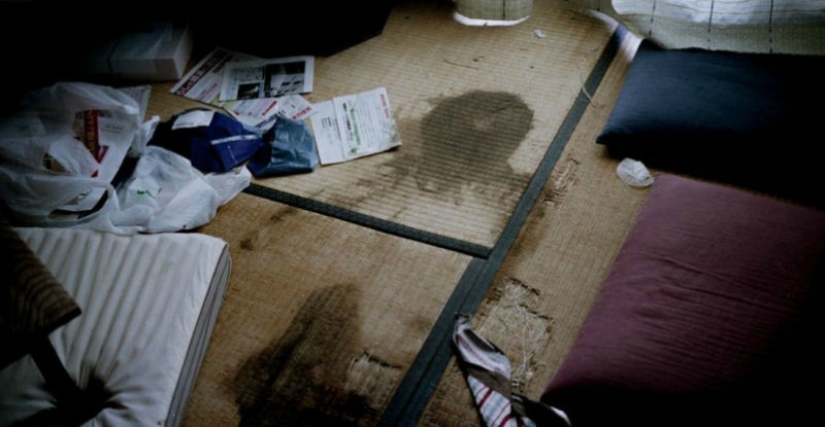

1. There is an even more eerie definition of this term, in fact, it is a silhouette of a human body formed as a result of fluids flowing out of the corpse during its decomposition and imprinted where the unfortunate was caught by death.
There was even a business of cleaning the house after the death of a person and sorting the things left after him. Workers who are engaged in the transportation of furniture for the families of the grieving say that they very often come across such kodokushi. According to one private company, in about 300 cases out of 1,500 such orders, they came across such sad symbols of human loneliness.
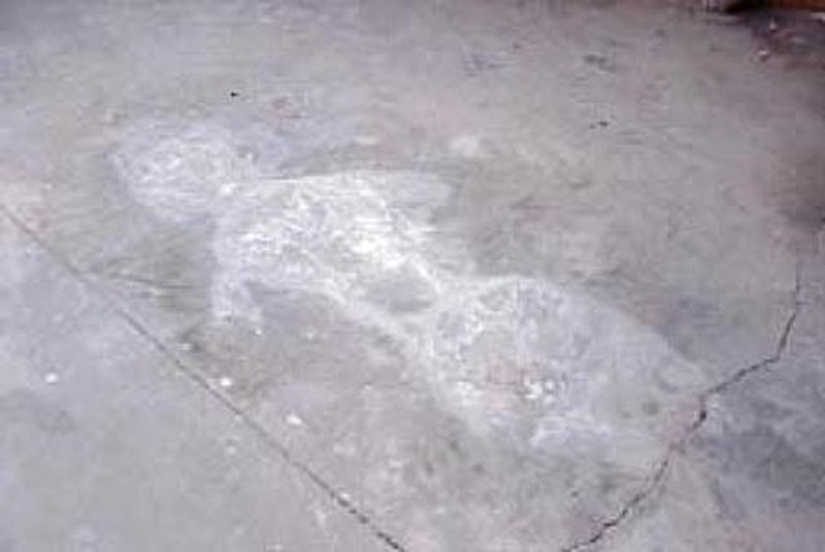
2. Once in Saitama Prefecture, the police found the bodies of three kodokushi at once. The bodies had been lying in the house for several months. The fact that the entire family living in the house died became known only after they were turned off for non-payment of gas and electricity. That's right — kodokushi never pay for gas.
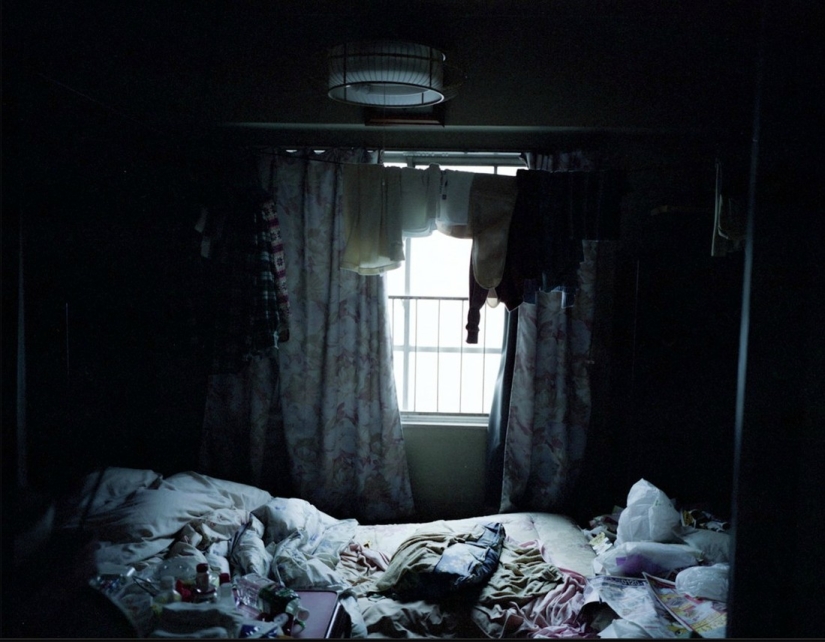
3. The kodokushi phenomenon was first described in the 1980s. According to statistics, in 2009 alone, about 32,000 old people died alone in Japan. Usually people aged 65 and older become kodokushi.
In 2006, almost five percent of all funerals in Japan were related to the burial of discovered kodokushi. In 2008, more than 2,000 bodies were found in Tokyo, which had been lying lifeless in their apartments for several months.
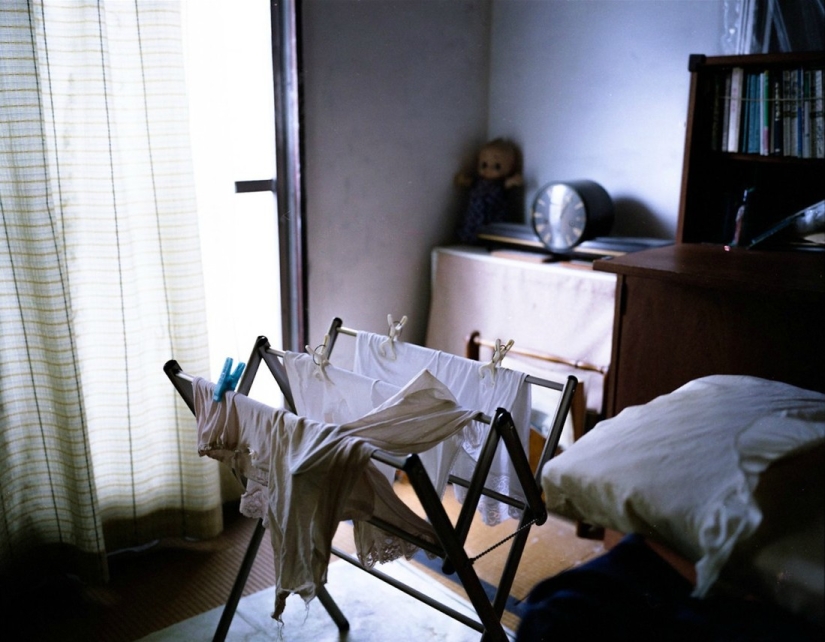
4. The main reason for the kodokushi phenomenon is the growing social isolation. People do not keep in touch with friends, neighbors and relatives and lock themselves in their own world, where death eventually overtakes them. Many Japanese devote their whole lives to work. They do not start a family and after retirement they are all alone.
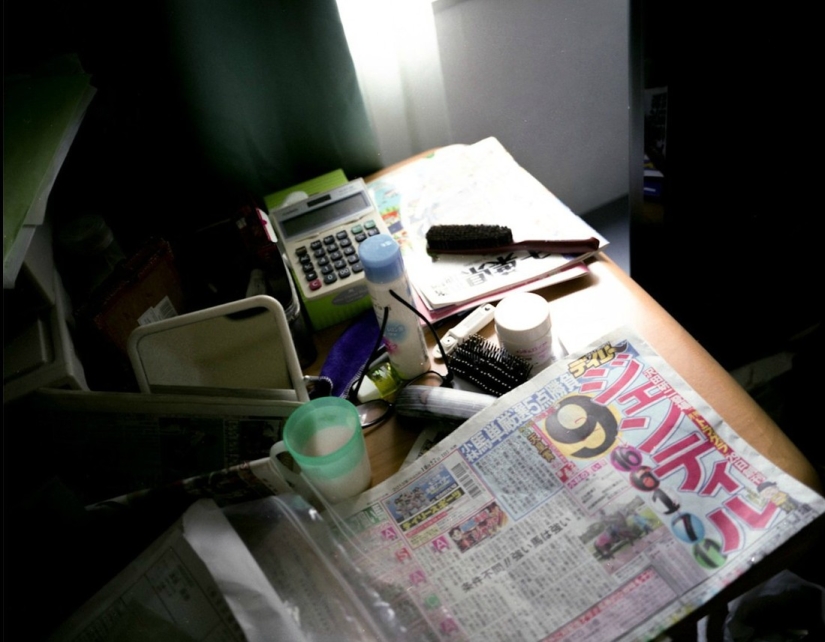
5. Most cases occur with withdrawn men about 50 years old who have little contact with society. There are also a lot of cases of deaths of old people — the usual image of a large family absorbing several generations living under one roof is already outdated, now old people very often live alone.
This also happens with temporary workers or contract workers — many men and women in this category of the workforce never get married, and when they die alone, no one knows about their death.
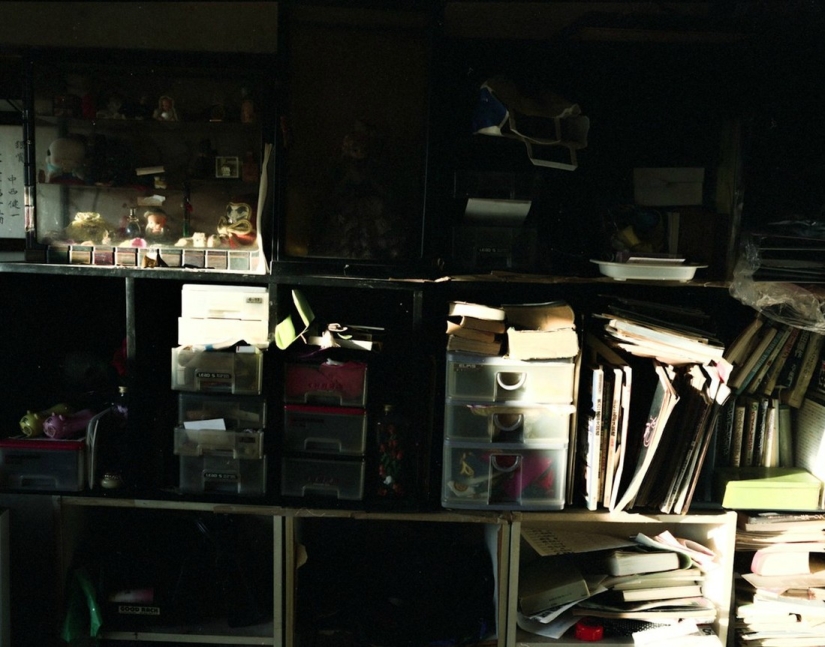
6. Now there are whole firms in Japan that are engaged in "cleaning" houses from kodokushi. Either there was no one to bury their bodies, or relatives "loved" their grandfather or grandmother so much that they disdained to take care of the deceased.
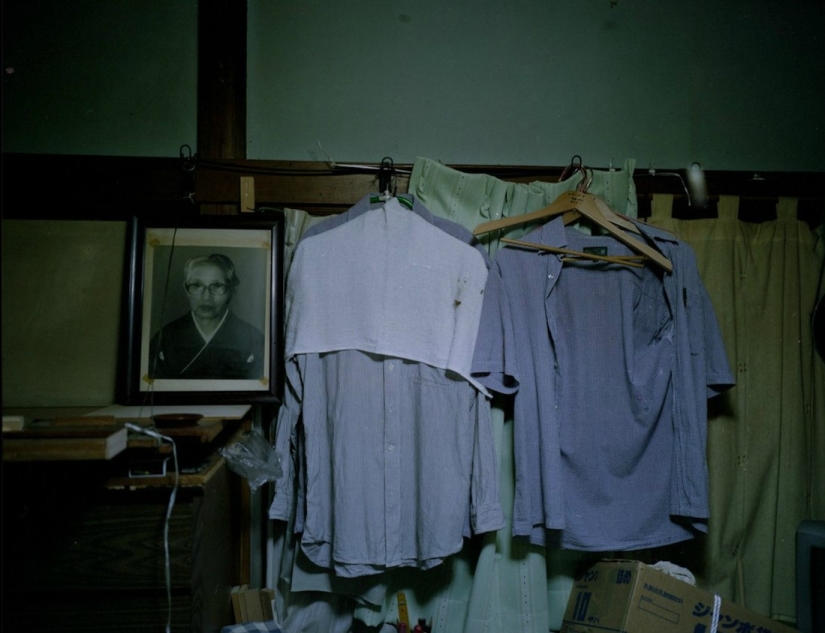
7. Once in Sapporo, the police found the bodies of two Kodokushi sisters. Both were 40 years old. Most likely, they froze to death in their apartment. It is not known how long they lay in the house.
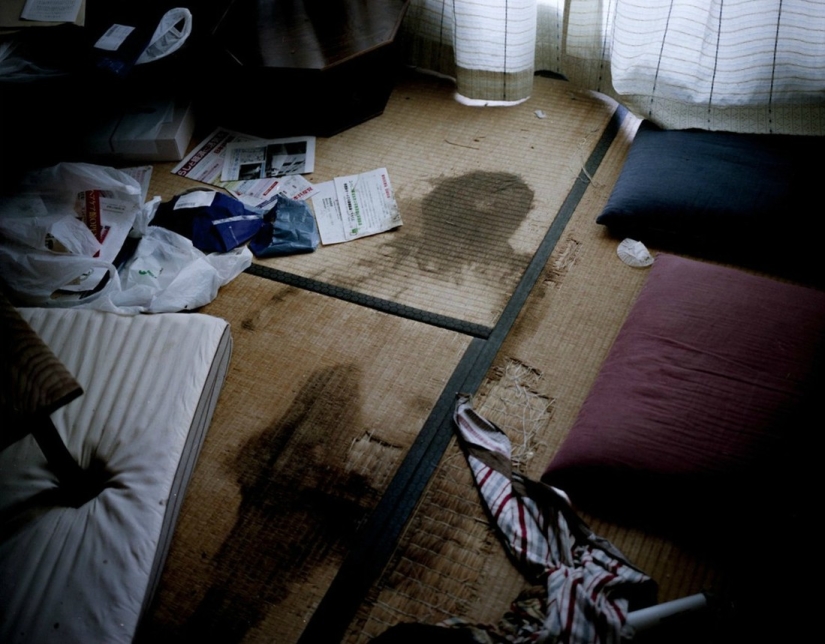
8. According to official data for 2009, of the total number of men in central Tokyo who died at the age of 65-69 years (among them the highest percentage of kodokushi), 8.4% were found more than two days after death. And 5.7% — after four days or longer. Almost 4% of the thousands of elderly men who died were left without attention for more than eight days. According to approximate calculations of the Research Institute of the insurance company "Nissei" (NLI Research Institute), in the same year the number of kodokushi throughout Japan reached 16 thousand. It took into account deceased men and women aged 65 years and older, after whose death more than four days have passed. And if we add here those who were discovered two or three days after the death, then this number rises to 27 thousand. It is assumed that there are more and more such cases.
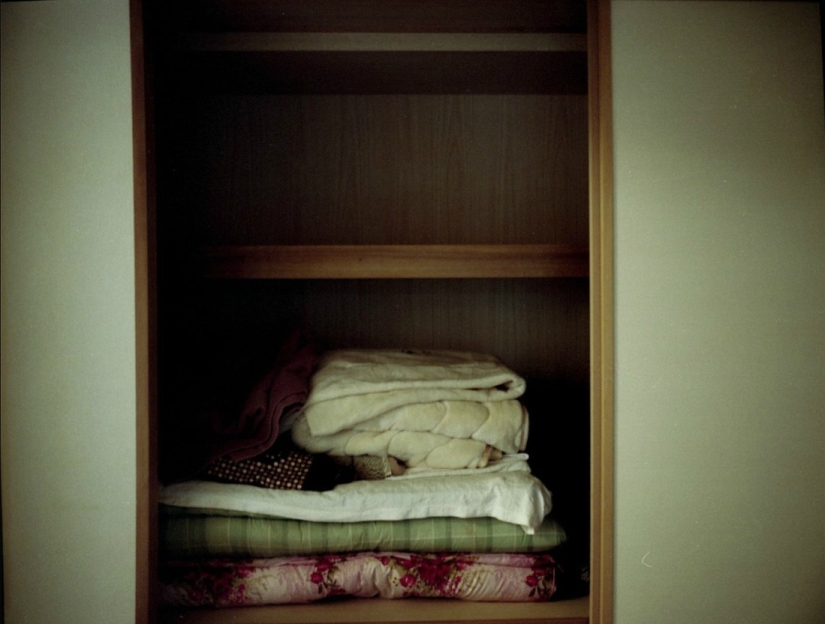
9. One of the reasons for kodokushi is the increase in life expectancy in Japan (today — over 80 years), which in other countries is most often regarded as a positive factor. However, as it turned out, longevity does not necessarily bring joy.
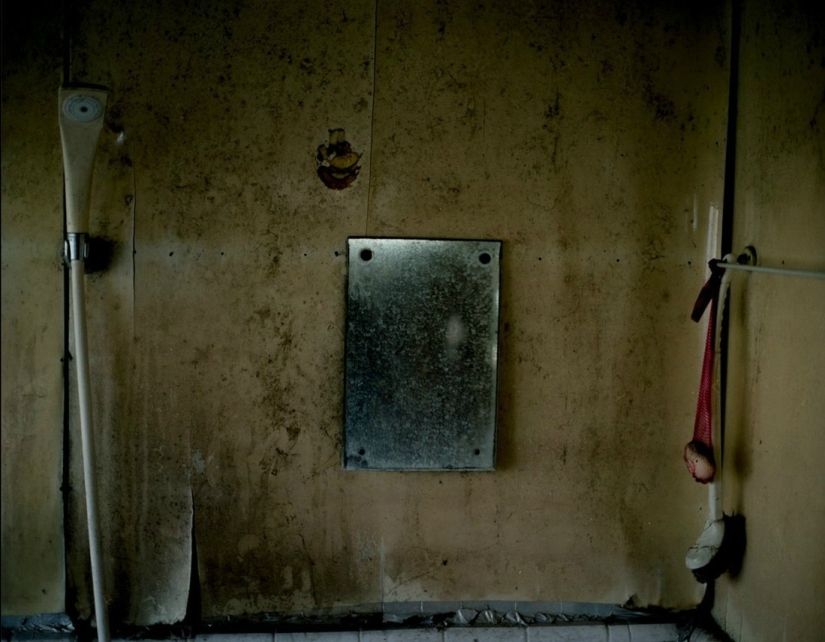
10. According to the Japanese National Institute for Population and Social Welfare Studies, if in 2010 the percentage of people living alone was 32.4% of the total number of families, it is expected that in 2035 this figure will grow to 37.2%. In general, as I noted earlier in my article "Herbivorous men", now in Japan not everyone has a life partner. According to the 2010 census, 20.1% of Japanese men and 10.6% of women aged 50 have never been married or married. It is expected that in 15 years, 30% of men and 20% of women will remain without a family for life. In the near future, the number of single people will inevitably grow — in particular, among middle-aged and elderly men and among middle-aged women who have survived their husband.
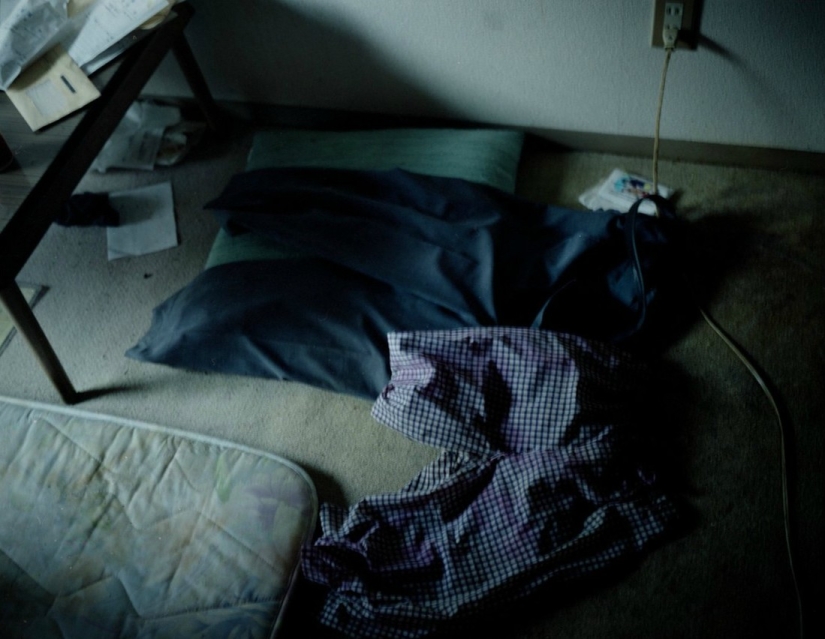
11. If earlier the percentage of families consisting of four people (parents and two children) was the highest in Japan, now this is no longer typical for the country. More and more families are childless or with one parent. The number of divorces is also growing. But even if there are children, they do not necessarily stay with elderly parents. Unlike the last century, a young couple, as a rule, prefers to live separately. In many families, elderly people take care of the elderly (most often a spouse, but children or daughter-in-law may also be aged if parents are over 80-90). Therefore, there were cases when a person died of hunger, leaving without the attention of the only, often elderly family member who provided help and care, but unexpectedly died himself.
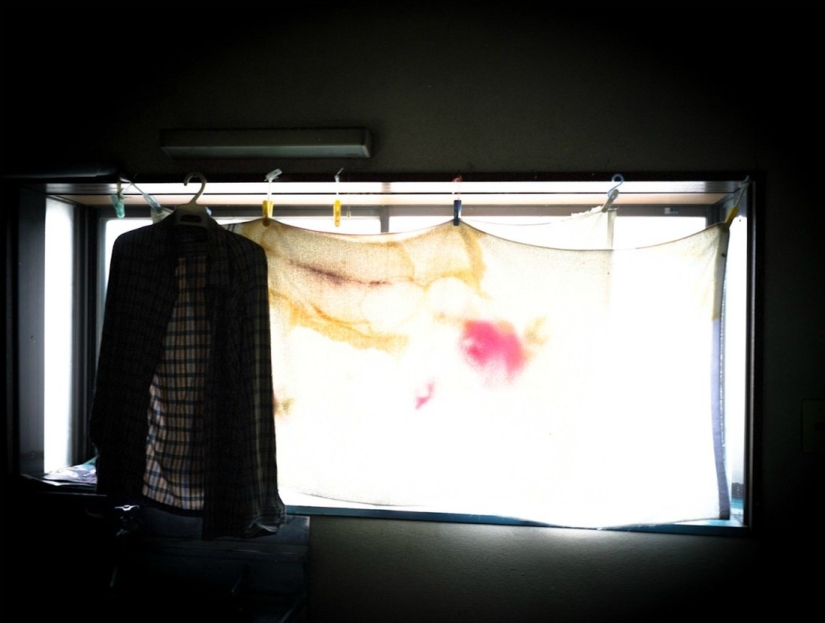
12. The risk of kodokusha is much higher in the stronger sex. More than 2/3 of single deaths occur among men. This is because most of the "traditional" Japanese men spend time in their companies and often do not know who else to talk to, except colleagues. And when men stop working, many are at risk of isolation from society. This applies not only to pensioners. After all, we have not had a system of lifelong employment for a long time, and people of different ages can lose their jobs at any moment. In addition, unlike women, for many men, household chores are unusual. If a married man's wife suddenly dies or leaves him, his situation may deteriorate dramatically.

13. So in Japan it is considered good luck if a person spends the last minutes of his life in a habitable house and without long suffering. But it happens that a lonely old man is found only a few weeks after death, when neighbors begin to complain about a bad smell. Interestingly, the kodokushi led to the formation of a new business. In Japan, many agencies began to appear that not only provide home cleaning services after a person's death, but also sort and throw away the deceased's belongings instead of relatives.
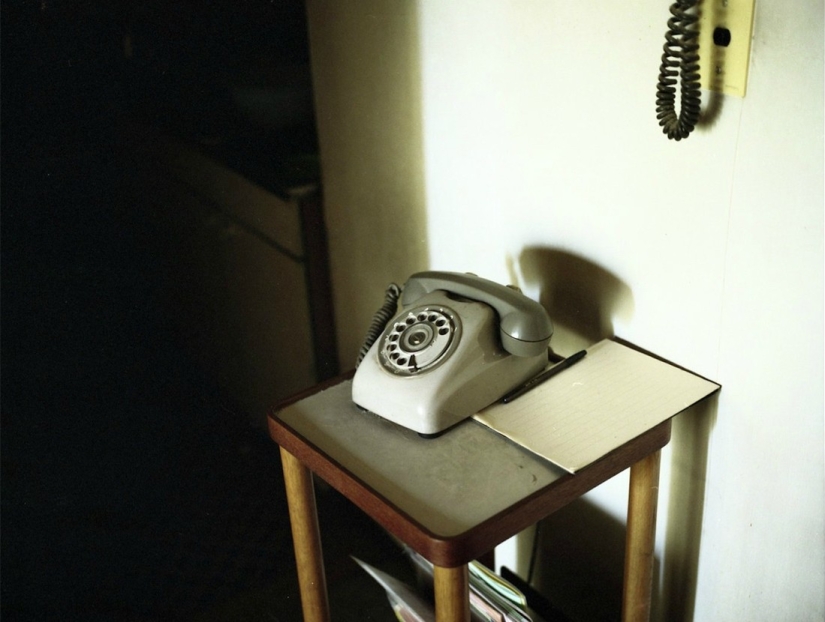
14. Some believe that the reason for the kodokushi phenomenon is that the Japanese are not used to thinking about death. In Japan, it is not customary to talk about it, nor to deal with the dead.
Keywords: Loneliness | Death | Japan
Post News ArticleRecent articles

It's high time to admit that this whole hipster idea has gone too far. The concept has become so popular that even restaurants have ...

There is a perception that people only use 10% of their brain potential. But the heroes of our review, apparently, found a way to ...
Related articles

Immunity to poisons at all times been the dream of all authority. List of popes, kings and emperors, gave his soul to God through ...

We all know that walking in extreme cold is dangerous, but few people know what happens to the human body at these moments.

Millions of people around the world buy lottery tickets in the hope of winning a happy life. They dream of luxury cars, luxury ...

New Year's is a time to surprise and delight loved ones not only with gifts but also with a unique presentation of the holiday ...